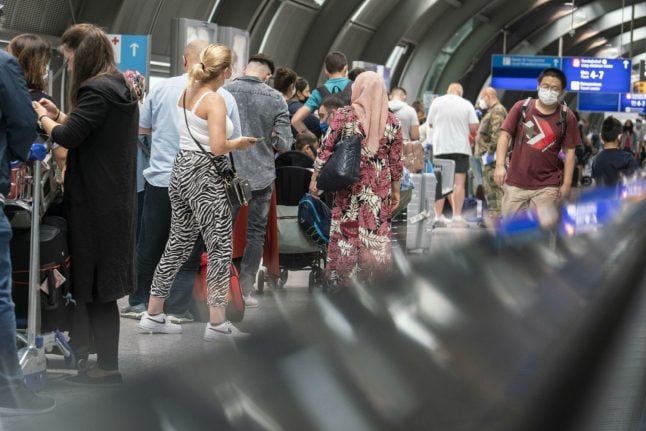People arriving in Germany from an area deemed high risk have had to undergo a mandatory coronavirus test free of charge since August 8th.
But Health Minister Jens Spahn now wants to change the testing strategy.
According to a proposal seen by DPA on Monday, Spahn wants to abolish mandatory testing after summer. Authorities say labs are struggling to cope with the extra testing in Germany.
Under the plans drawn up after a meeting between Spahn and state health ministers on Monday, instead of making travellers from high-risk regions undergo a test directly upon entry they will be required to quarantine.
The quarantine can “only be ended by a negative result from a test taken five days after entry at the earliest”, the proposal states.
READ ALSO: Can you be forced to take a coronavirus test after returning to Germany from a risk country?
A spokesman for the Health Ministry said on Monday that laboratories are currently under strain and that it is foreseeable that the system will reach its limits.
“It is also clear that if we run at full load for weeks in this area, we will have problems with materials and personnel,” said the Ministry. Therefore, the test strategy must be adapted accordingly, they said.
According to the spokesperson, around 875,000 coronavirus tests are currently performed each week. The laboratories have a theoretical capacity of around 1.2 million.
The topic of paying for tests has also been discussed in Germany over the previous weeks. However, it remained unclear on Monday whether the new rules will include charging people for tests instead of keeping them free of charge.
READ ALSO: These are the five major coronavirus problems in Germany right now
Germans in favour of mandatory tests
Since the end of July anyone travelling into the country from abroad can get tested for Covid-19 free of charge if they choose.
The mandatory testing order for people turning from risk zones has been in place since Saturday, August 8th.
A large majority of German citizens are in favour of the coronavirus test obligation for travel returnees from risk areas. In a survey published on Monday in Berlin by the Federal Institute for Risk Assessment (BfR), 91 percent support mandatory tests.
The acceptance of the other rules for the containment of coronavirus also remains at a high level. Distance rules, compulsory masks and the cancellation of events are considered appropriate by more than 85 percent of those surveyed.
Angela Merkel plans to meet with the heads of federal states on Thursday. It is expected that this topic among others will be on the agenda, and decisions will be made on how to proceed.



 Please whitelist us to continue reading.
Please whitelist us to continue reading.
Member comments